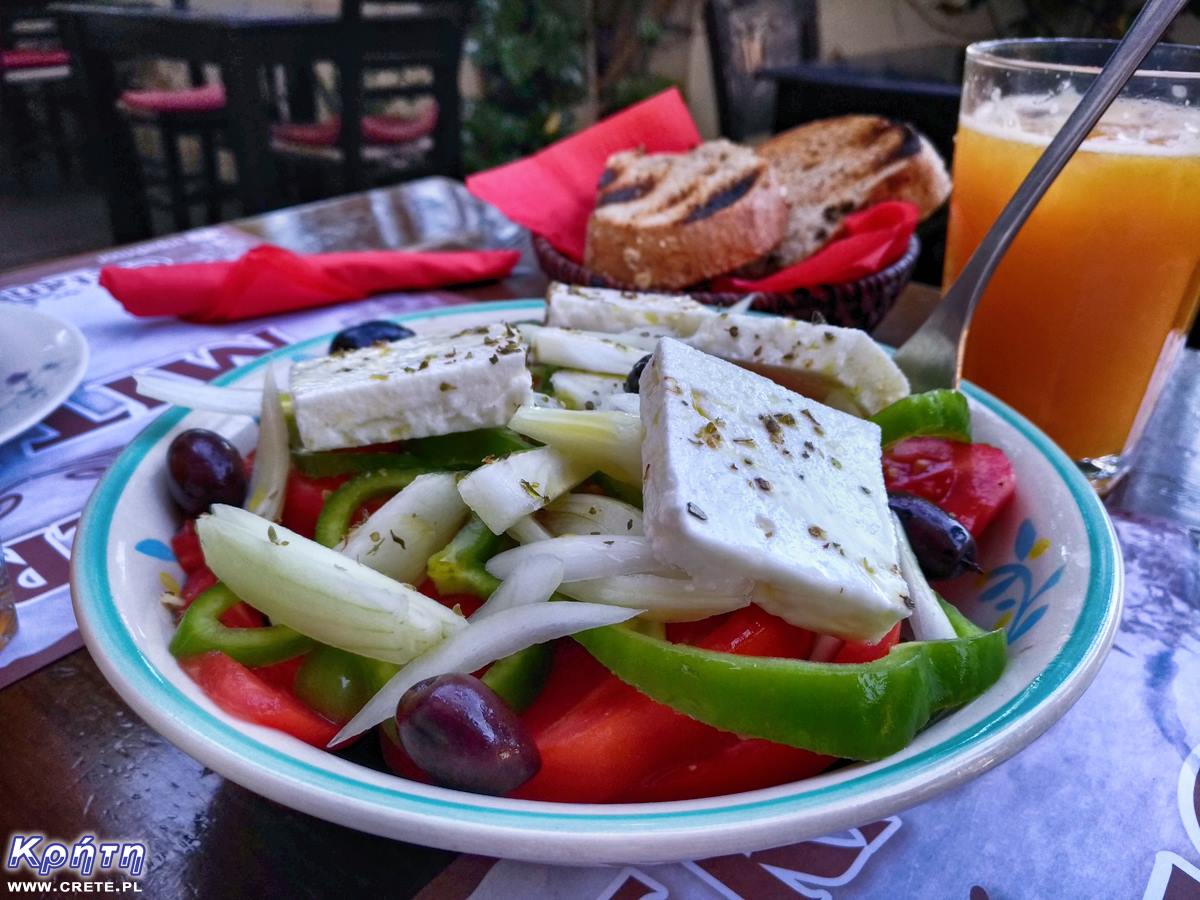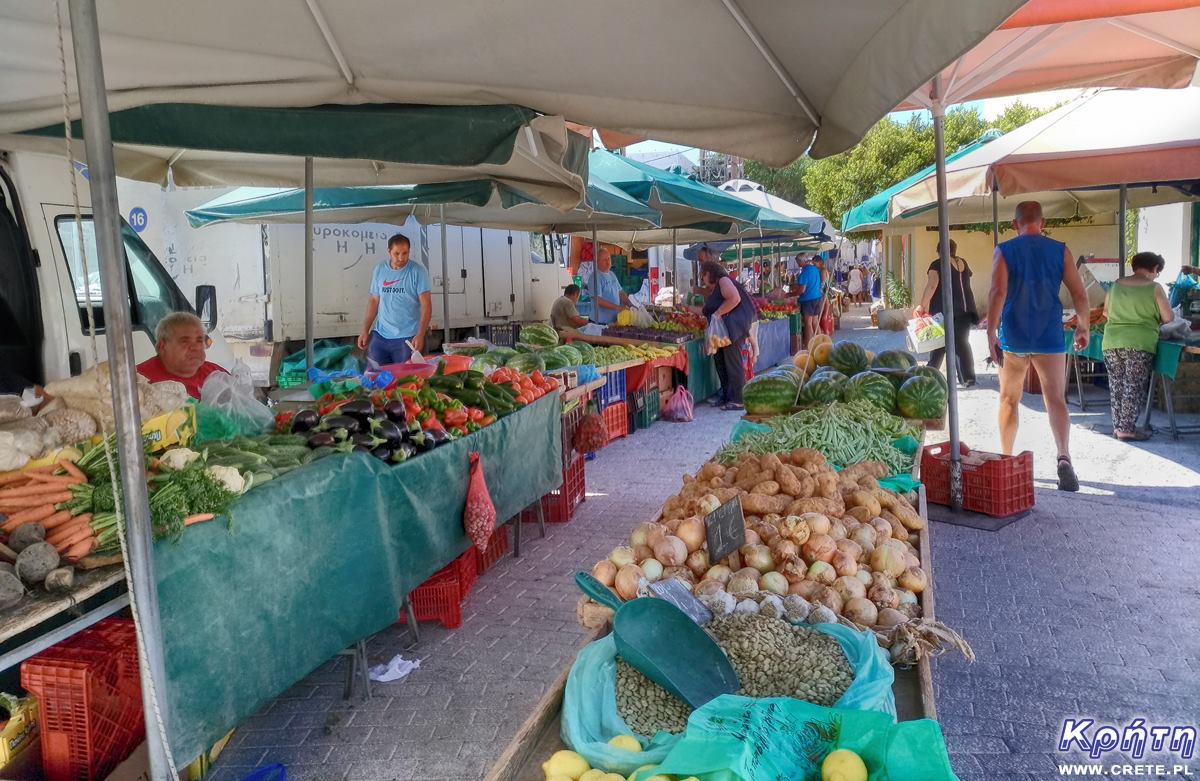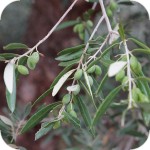
Greek diet is associated with a healthy diet based primarily on a large amount of vegetables and fruits. The health benefits of its use have been the subject of many scientific studies, which confirm the very beneficial effect of the components consumed in this diet on general health. It might seem, therefore, that the Greeks are a very healthy nation in that case. Nothing could be more wrong because in recent years many of them have fundamentally changed their eating habits and behaviors . This note applies especially to Greeks living in large urban centers. These changes clearly show the latest results of statistical surveys recently published by Eurostat.

They show that Greek citizens consume fruit and vegetables not only less than other Mediterranean ones, but even less than the European average. On average, about 64% of the community's citizens declare that they eat a portion of vegetables at least once a day. In Greece, however, the percentage of such people reaches only 60%. This is a paradoxical result, because in a country where these products are available throughout the year, the share of vegetables and fruit in the daily diet should be at the top of the food pyramid. It is for this reason that in Greece the results of these tests were perceived as a "blow to the stomach".
For comparison, data published by Eurostat show that among Europeans who declare intake of vegetables at least once a day, the best are the Irish and Belgians (84%), Italians (80%), Portuguese (78%) and the inhabitants of Luxemburg (74%). It is striking that no less high vegetable consumption is maintained in such countries as Sweden (72%) or Finland (67%). In the case of both countries, this means much higher costs for their residents for daily meals.
Below the European average there are also Poles, Danes, Dutch, Austrians, Germans, Croats and Slovaks. In terms of vegetable consumption, the Bulgarian, Lithuanian, Latvians, Romanians and Hungarians are in the very tail of the ranking of countries. In the latter country, only 30% of inhabitants declare that they consume vegetables at least once a day.
These statistical data also reflect a change in the way of life. Once on Crete, people passed at least 10 km a day, now the average is only about 1 kilometer. In the past, during the whole year, only on special occasions, there were single days during which 4 full meals were consumed. Today such a feast happens to the Greeks many times, even about four times a week.
Therefore, it should not come as a surprise that the Cretans have become "masters" in childhood obesity, with all its side effects, e.g. juvenile diabetes. A society pays health for a dramatic change in eating habits and the way of life.

Eurostat data also confirms the opinion of Nikos Katsaros, former chairman of the Unified Food Control Agency . This well-known Greek scientist indicates that it is time for the state to take responsibility for the health of citizens and to initiate initiatives to improve it.
The reversal of this disappointing trend should become a priority for the current government. It is necessary not only to coordinate efforts and focus activities in schools, but also to focus their attention on parents who should be trained in the benefits of using a healthy diet.
According to Katsari, Greece should be in the top three European countries where the consumption of vegetables and fruits is the highest . This is all the more important due to the fact that Greece is a country which is after all a peculiar homeland of the Mediterranean diet, which is considered by many dieticians to be very healthy.

In the world of culinary products there is a small group of those for which the storage time is a beneficial factor that allows for greater nobility of taste. As a good example, we can mention wines that have matured for decades to please the palate of wealthy connoisseurs. Unfortunately, this rule does not apply to oil, whose properties and taste virtually from the moment the finished product is obtained are slowly degraded. It is worth asking yourself: how to store oil to slow down this aging process?

Feta is a soft cheese with about 40% fat content. It is also fragile and melts well. Thanks to storage in brine, it retains freshness for a long time. The conditions in which feta ripens affect its taste. It can be spicy, mild or more salty. Greeks usually have their favorite types and buy them.

A few days ago, the World Health Organization published a report on childhood obesity. Interestingly, this problem is not only the domain of northern European countries but above all those that are the cradle of the Mediterranean diet. A new WHO report presented at the European Obesity Congress in Vienna pointed out that out of 34 countries in the European region, Cyprus, Greece, Italy, Malta, San Marino and Spain have the highest obesity rate in children from 6 to 9 years. Therefore, being overweight becomes the same problem as in Great Britain.
Komentarze
komentarz z
Ja niezmiennie polecam Wam w tawernie zamówić coś nieoczywistego i wegetariańskiego. :) Wybór jest ogromy. O" wilku sytym i owcy całej" chyba nie muszę wspominać... ;)
http://nieudawajgreka.pl/grecja-pieklo-czy-raj-dla-wegetarian/
komentarz z
Horiatiki ze zdjęcia jest tu wyłącznie ilustracją niezbyt wesołego artykułu na temat nawyków żywieniowych współczesnych Greków. Polecamy lekturę!
komentarz z
CRETE - Kreta co tam na talerzu lezy i prosze o przepis
komentarz z
Barbara, to jest sałatka horiatiki bardziej znana jako sałatka grecka. Przepis znajduje się na naszej stronie: http://www.crete.pl/kuchnia-grecka-salatki/horiatiki-greek-salad.html
komentarz z
CRETE - Kreta dziekuję
Wyniki
Czy można prosić o link do wyników badań EUROSTATU?
Link do artykułu
Poniżej znajdziesz link do źródłowego artykułu:
https://ec.europa.eu/eurostat/web/products-eurostat-news/-/DDN-20190401-1
Pamiętaj tylko, że są to dane z 2017 roku. Możliwe, że jest jakieś nowsze opracowanie.
Wypełnij poniższy formularz aby dodać komentarz
lub kliknij w poniższy link aby skorzystać z możliwosci komentowania przez facebooka:
https://www.facebook.com/crete.poland/posts/10156265931287551